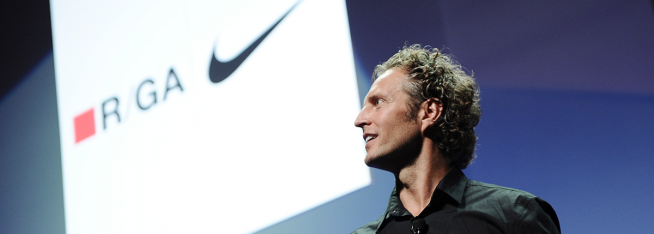Is it a big idea behind the work? A tight strategic rationale? Or some fancy pants motion graphics?
I’ve worked with some people who are masters at crafting award case studies. And they’ve got some trophies in their cabinets to prove it. But does it still come down to the fundamentals? A great strategic insight married to a great idea? For me, it does. No amount of animation, polish, after effects wizardry will convince a savvy audience that the piece of work is greater than these fundamentals. A copywriter I respect highly once said to me – if you can’t articulate an idea in a sentence, it’s too complicated. As in, keep it simple.
This analogy also frames it up well for me – Telling someone about a piece work is like telling someone a story in a pub. The better the story, the more people will crowd around you with their beers. If the story sucks, doesn’t make sense or is too long, no amount of over animated gestures or free beer offerings will save you. We’ve been telling, hearing, reading stories since we were in nappies. My two year old has books coming out of her ears – some she loves, some she switches off to immediately. The ones she loves are the simple ones – a simple idea behind the plot, a simple and engaging delivery. Not too many things going on at once. Two year olds have a short attention span and so do people judging awards.
So could this form a simple foundation for storytelling in award case studies? Judges have to sift through hundred of pieces of work to find what stand outs. The lengthy, over indulged, over animated case studies sometimes get overlooked. Keep it simple – clearly and quickly articulate the strategy, frame the idea up in a sentence, highlight the innovative features of the solution. Don’t bang on about every feature. Otherwise you run the risk of it being skipped or falling on deaf ears.
This I started thinking – should an award focused case study be able to stand up on it’s own and appeal to a different audience? For example, to marketers who are assessing an agency’s calibre of work. Absolutely. What’s to say a marketer isn’t any less time poor than an award show judge? For me, the fundamentals should stay the same for every audience. With digital content invading more and more of our lives on multiple screens, people have less time to pay attention. So if you’ve successfully got the attention of your audience, make sure you use it wisely.














Very insightful and interesting read. Your a skilled master of your game Karl. Very nice work!
Good stuff mate
Some additional thoughts here on this if yoy’re interested :
http://farisyakob.typepad.com/blog/2012/02/how-to-make-awesome-case-studie-videos.html